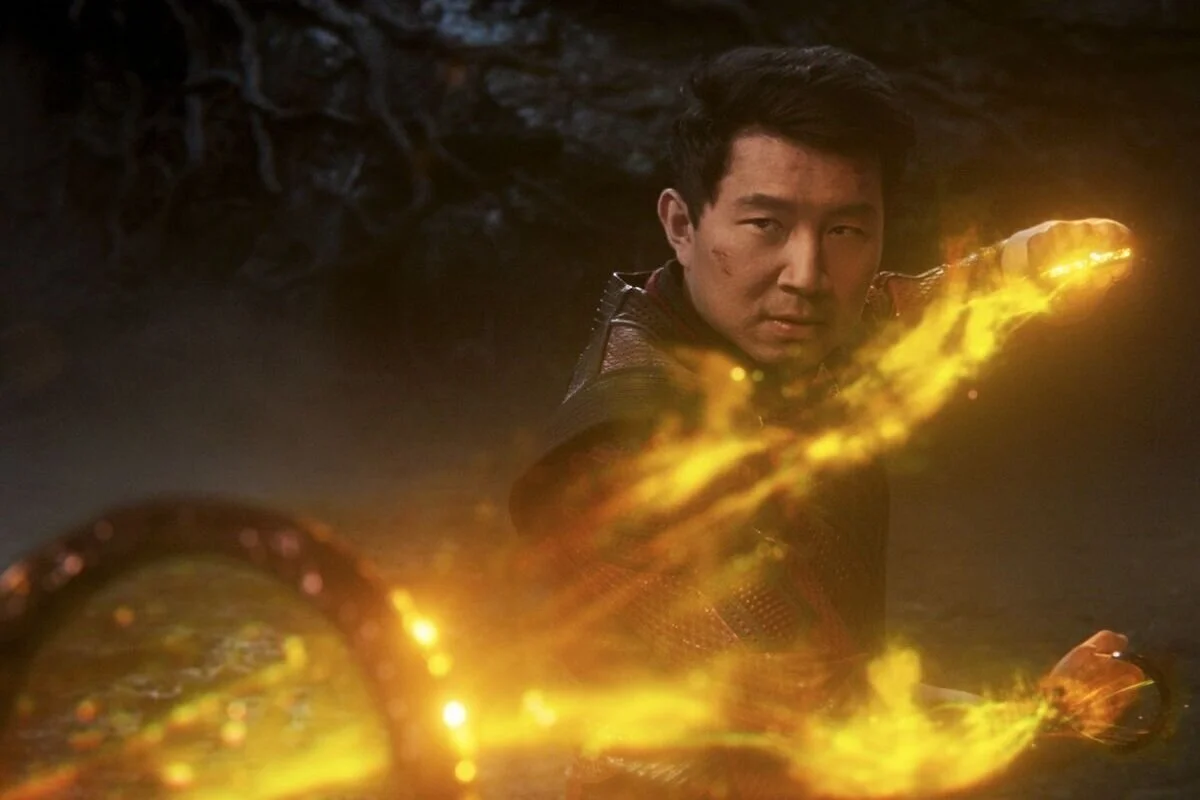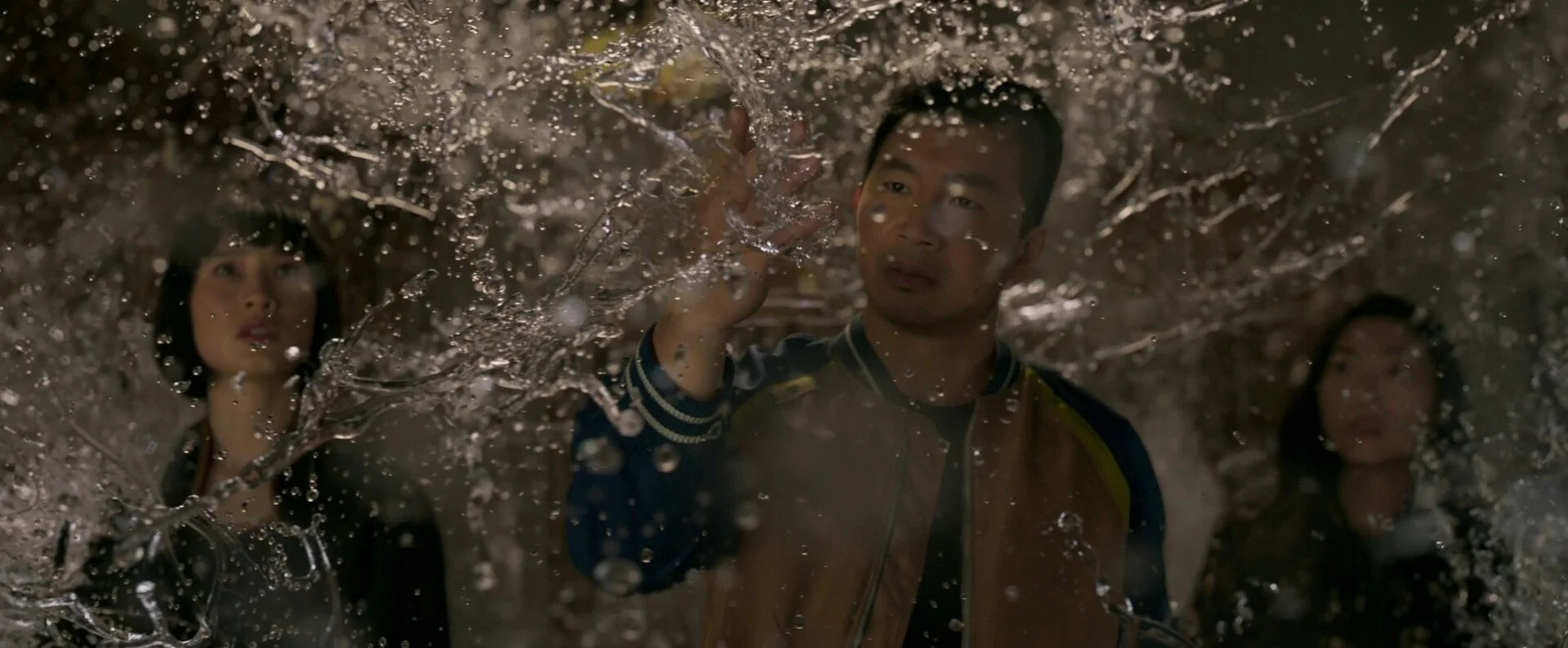SHANG-CHI
AND THE LEGEND OF THE TEN RINGS
Marvel’s newest hero comes out swinging.
Representation matters. At this point, those two words border on cliché, yet it doesn’t make them any less true. From all corners of our society and in every form of media, representation is crucial in offering us a true reflection of the world and its population.
As one of the biggest media platforms in the world, cinema – and Hollywood in particular – has made great strides in its approach to representation, however, the journey is far from over. Likewise, as one of the biggest shows in town, Marvel Studios have come a long way in a relatively short space of time, and, to this end, it’s clear they’re fully aware that representation lies at the heart of their longevity.
Diversity of character is key to allowing every corner of your audience the opportunity to connect with their heroes in ways that have eluded them for years, however, diversity of storytelling is just as crucial to ensure fatigue doesn’t set in. In an era when superheroes and comic book movies are everywhere, the key to their – and by extension, Marvel’s – sustainability is diversification in all its forms.
Step forward Shang-Chi.
Forced to confront the past he thought he’d left behind, Shang-Chi (Simu Liu) is drawn back into his estranged father’s (Tony Leung) shady Ten Rings organisation. With his best friend Katy (Awkwafina) tagging along for the ride, Shang-Chi must overcome his demons and his daddy issues to become the hero he was destined to be and save both his family and the world from malevolent mystical forces.
For the longest time, the prevailing belief of your average Hollywood studio was that Asian-centric stories did not make money. However, with the unprecedented box office success of Crazy Rich Asians, a glimmer of hope emerged that suggested change was on the horizon.
But if true change is to come, it’s important that Crazy Rich Asians isn’t perceived as a fluke, and where better to prove this than on the biggest Hollywood stage right now – the superhero film. As such, the significance of Shang-Chi and the Legend of the Ten Rings and the importance of getting Marvel’s first Asian-led movie right cannot be overstated.
Getting such a thing right is easier said than done however, and the resounding critical and financial thud of Snake Eyes mere weeks ago suggests many studios are yet to turn this particular corner. But, if there’s anyone in Hollywood well equipped enough to make this work, it’s Marvel.
Like Black Panther before it, Shang-Chi and the Legend of the Ten Rings marks a pivotal moment for both Marvel and the industry at large, and while their films couldn’t be further apart, the trailblazing nature of Shang-Chi and T’Challa’s stories are irrevocably linked. And, just as they got things bang on with Black Panther, Marvel have landed yet another powerful blow here.
Hollywood has, of course, done martial arts many times before, and not without its successes, however, what’s been glaring for the most time is just how non-Asian and skewed away from their roots they can be. Without a doubt though, Shang-Chi blows this age-old attitude out of the water with an approach and an energy so thoroughly Asian – specifically Chinese – that it feels like a genuine game-changer.
To a degree rarely witnessed from a western-produced blockbuster, Shang-Chi positively immerses itself in Chinese lore, using the country’s rich mythology as a key component of its hero and his journey. Firmly rooting itself in Chinese culture, the film never once attempts to gloss over its protagonist’s origins, with Marvel’s faith in the story and their dedication to getting it right instilling Shang-Chi with an unshakable authenticity.
You can feel it in the heart and the very soul of the film, and, above all else, you can feel it in every blow of Shang-Chi’s action. Using martial arts not simply as a means to an end but as a vital component of both Shang-Chi’s character and his story, the film is unafraid to weave its action into the very fibre of its narrative in a way we’ve yet to truly see in the MCU.
Shot by former Matrix DP Bill Pope and crafted by the late, great Brad Allen, Shang-Chi’s action stands up, not only as the MCU’s finest since Winter Soldier, but as some of the best Hollywood-based martial arts ever. Impeccably crafted, genuinely jaw-dropping, and seamless in its execution, the film’s fight sequences are a thing of beauty, resisting the usual Hollywood habit of editing things to within an inch of their life, instead letting it all breathe and making it the very heart of the story.
From the thrilling bus fight that’s played a prominent part in the film’s marketing, to our mesmerising wuxia-infused introduction to Tony Leung’s Wenwu, there really are too many fantastic fight scenes to mention. Whether it’s the direction, the camerawork, or the fearless endeavour of the cast, Shang-Chi positively rips up both the Marvel action playbook and the industry’s approach to martial arts in general.
As a package, Shang-Chi is impeccably put together, with director Destin Daniel Cretton managing to wrangle together so many strange and disparate elements into a final product that hangs together far better than it has any right to. To wrap Chinese mythology and an array of martial arts styles around a touching family drama, all while keeping one foot firmly withing the Marvel Cinematic Universe, credit must go to Cretton who steps out of his indie filmmaking comfort zone to delicately balance all these huge elements seamlessly.
Mixing elegant, ethereal moments that evoke the spirit of Crouching Tiger, Hidden Dragon and a legion of wuxia classics with the kinetic energy of Jackie Chan’s back catalogue, Cretton has crafted an absolute feast for the eyes that takes huge spectacle and threads it delicately through with his own brand of intimate filmmaking. Outside of this action, the film absolutely looks the part, with Bill Pope’s astute eye lifting Shang-Chi above the regular Marvel palette to become one of the studio’s best-looking efforts to date.
As we enter the third act, the scale of the action and the use of CGI inevitably ramps up, and while you do wish Marvel would occasionally pull back from this trait, you cannot fault how it’s deployed here. Without wanting to give too much away, the grand, fantastical scale of Shang-Chi’s finale really does require some hefty CGI and when it’s executed this well, it’s hard to argue with.
Around this, the story is a simple one of family feuding and the now-patented Marvel paternal issues, but while it’s nothing particularly spectacular, it does work to add an admirable depth to proceedings. Touching on themes of legacy, ancestry, family, and loss (something that’s loomed large in Marvel’s Phase 4 thus far), Shang-Chi packs the necessary emotional punch to augment its narrative simplicities.
While never straying too far from the well-trodden superhero origin path, context is everything with Shang-Chi, as while some beats may feel familiar, they’ve never been presented like this before. By deeply anchoring its hero’s origins in such a rich culture and mythology, the film feels as fresh and as unique as any maiden solo outing Marvel Studios have ever produced.
As a whole, Shang-Chi just clicks, and a huge part of this coherence is down to the film’s remarkable cast. As the focal point of all this, Simu Liu steps up to the plate with a performance of poise, power, and charisma that proves he’s ready to play a huge part in the MCU for years to come.
In what is his first significant film role, the man who’s spent years exuding effortless sitcom charm on Kim’s Convenience embraces the role of Shang-Chi with all he’s got, making the hero utterly his own and putting himself right up there among the pantheon of Marvel icons. In many ways, Simu makes the film his own, but it’s through Shang-Chi’s extended cast and the star’s chemistry with those around him that things are taken to a whole new level.
In particular, the chemistry between Simu and Awkwafina is just downright cute and a huge part of what makes the film tick. Pitching her character Katy just right, Awkwafina bounces off her co-star brilliantly and manages to rise above potential sidekick clichés to add humour and heart to proceedings, all while filtering everything through her utterly unique energy.
Around them, huge props must go to Meng’er Zhang, who bosses it in what marks her first ever on-screen role, while the legendary Tony Leung absolutely steals the show as the nefarious Xu Wenwu. Proving once again that Marvel’s perceived villain problem is a thing of a past, Leung brings tons of style, class, depth, and genuine menace to put his character right up there in the MCU bad guy hall of fame.
Working perfectly as a standalone adventure while doing well to plug itself directly into a larger universe, Shang-Chi represents one of Marvel’s finest origin stories to date and shows just what can be achieved within the wider superhero genre if fear is removed and representation is embraced.
Breaking new cultural ground for the MCU, Shang-Chi and the Legend of the Ten Rings fully embraces its destiny as a torchbearer for Asian representation, yet it does so without losing sight of its duty to entertain in the way only Marvel movies can. Through truly spectacular action, superb performances, enthralling visuals, and finely balanced emotion, Shang-Chi is without a doubt one of Marvel’s finest solo efforts and the moment the franchise’s new era really kicked into gear.





